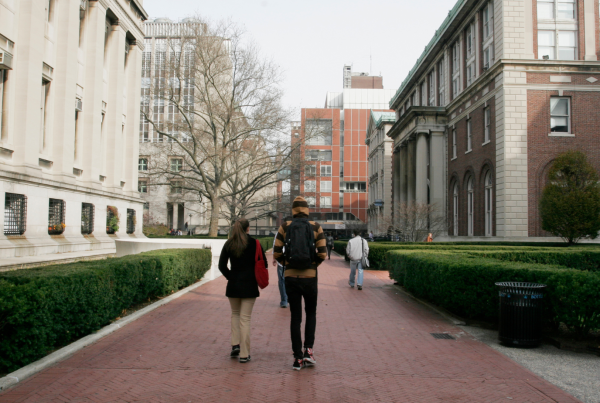 By Eric Lynne
By Eric Lynne
In addition to a standard personal statement essay, many schools require students to write and submit supplemental essays. These additional essays come in many different shapes, sizes, and styles depending on what the school is trying to learn about its applicant pool.
Some students mistakenly believe that these supplemental essays are less important than the personal statement. The reality is that both the personal statement and the supplemental essays are important. These supplemental essays require in-depth research, careful thought, and attention. Unlike the personal statement, which is a piece of writing meant for a general audience, these supplemental essays will be much more specific; it’s the difference between writing a speech for a general audience and writing a personal note.
On August 1st, the Common Application will reboot for the 2019-20 application season. This reboot coincides with the time most colleges will release their supplemental essay prompts. Students would be wise to get started on these essays as soon as they are available, not only because they are important but also because they are plentiful. In order to get all of supplemental essays done well and on time, multiple drafts and edits will be needed.
If you are interested in receiving college essay writing guidance, please email us at info@galined.com to get set up with an appointment or program. We have hourly appointments available, another College Application Boot Camp at the beginning of August, as well as a comprehensive essay program to help you from start to finish.
Whether interested in receiving guidance from us, students can (and should!) start preparing for these supplemental essays now—even before all of the supplemental essays are available. How? Colleges often are curious about the same things and want to know the same information about their applicants; therefore, there are common types of questions colleges like to ask. By brainstorming and preparing for these common question types, a student can strategize and repurpose some of their writing for multiple supplemental essays. To get this process started, below are six of the most popular types of essays you will see this upcoming application season with examples of some current and previous year’s prompts. For additional help strategizing and brainstorming your essays, you may want to contact us at Galin Education (info@galined.com) to set you up with an appointment with an essay specialist.
The “Why?” Essay: The most common of the supplemental essays is what many call the “Why?” Essay. Though each school asks this question in its own way, the “Why?” Essay essentially asks the student to explain why he or she is interested in applying and attending the specific school. (We actually have a parent chat devoted to this essay coming up next week on Monday, July 29—sign up here!)
- Example from the University of Wisconsin–Madison: Tell us why you would like to attend the University of Wisconsin–Madison. In addition, please include why you are interested in studying the major(s) you have selected. If you selected undecided please describe your areas of possible academic interest. (Length: 650 words)
The Major Essay: Schools want to know what drives your interests and what kind of success you’ve already had in those fields. Some schools combine this essay with the “Why?” Essay, often asking students to specifically speak about their major in their “Why?” Essay.
- Example from UT-Austin: Why are you interested in the major you indicated as your first-choice major? (Length: 300 words)
The Activity Elaboration Essay: Schools are interested in knowing how students may contribute to campus outside of the classroom. Because the activities list is so condensed, many schools ask for an additional explanation of a student’s involvement in one of these activities.
- Example from Harvard: Please briefly elaborate on one of your extracurricular activities or work experiences. (Length: 150 words)
The Community Essay: Many schools are interested in creating an inclusive and diverse campus. These essays are an opportunity for students to explain their cultural identities and show their prospective schools that they are open to working alongside people of all different backgrounds.
- Example from University of Michigan: Everyone belongs to many different communities and/or groups defined by (among other things) shared geography, religion, ethnicity, income, cuisine, interest, race, ideology, or intellectual heritage. Choose one of the communities to which you belong, and describe that community and your place within it. (Length: 300 words)
The Intellectual Essay: Certain schools want to see evidence of a student’s academic mind at work. Therefore, the school may ask the student to respond to a prompt that requires analysis and thoughtful consideration of their own interests and passions.
- Example from Washington University: Tell us about something that really sparks your intellectual curiosity and compels you to explore more. It could be an idea, book, project, cultural activity, work of art, start-up, music, movie, research, innovation, question, or other pursuit. (Length: unspecified)
The Quirky or Imaginative Essay: Certain schools are interested in seeing a student’s creative side. Therefore, the school may ask the student to respond to a prompt that allows students to be more creative. Typically these are not your standard argumentative essays; instead these essays ask you to think outside of the box.
- Example from the University of Chicago: Cats have nine lives, Pac-Man has 3 lives, and radioactive isotopes have half-lives. How many lives does something else—conceptual or actual—have, and why? — Inspired by Kedrick Shin, Class of 2019 (Length: 2 pages)





